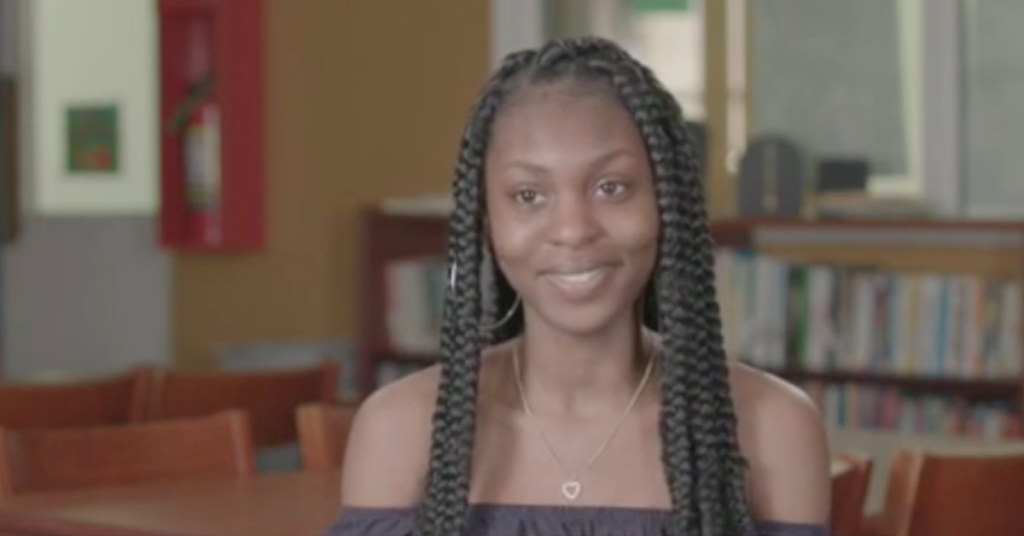Welcome to the Alain Locke Charter School Alumni Focus series. Over the coming months, we’ll be publishing interviews with just a few of the promising young adults to have come out of Alain Locke. These four graduates personify our commitment to “absolute excellence,” and although they’re now out in the world doing big things—they’re carrying the values they learned as students with them along the way.
Now read on as Karmyn Doughty, a graduate of Alain Locke Charter School’s Class of 2012, shares her story.
Like many of her fellow alumni, Karmyn attended Alain Locke from kindergarten all the way through eighth grade. As a young student, she knew that attending college wasn’t an option in life—it was a necessity.
“[Alain Locke] got ‘college’ in our head at a really early age,” she explains. “Some people that didn’t go to Alain Locke, I would talk to them and they wouldn’t, you know, see college as a ‘must.’ But coming from Alain Locke, I always thought that college was a ‘must.’ I had to go to college.”
After graduating from Alain Locke, Karmyn went on to attend Chicago’s Whitney M. Young Magnet High School. Although she had originally set her sights on Spelman College, Karmyn later chose to pursue a degree at the University of Illinois at Urbana-Champaign, where she could be closer to home.
Below is a transcript of our recent interview with Karmyn. It has been edited lightly for clarity.
AL: What do you hope to do after graduating from U of I?
KD: My vision is to have a resource center. It will be located in Chicago. I just want to help people who just got out of jail, and homeless people. Just anybody who needs help. It will help them find a place to live; it will help them find a job. If they have children, it will provide tutoring for the children. If you need clothes or food—or anything that you need, I just want to be able to help them. I know mental illness is a problem for people, so I want to have resources for that. I just don’t like that [these people] are left hanging. They need help.
AL: What motivated your decision to select Whitney Young for high school?
KD: One day, I don’t remember what grade, but I remember I was very young and they had us doing an activity in the computer lab where we had to find our dream school. We had to find our dream high school and our dream college. My dream was to always go to Whitney Young and then Spelman. … I had a best friend, and that was our plan. So from that day forward, I just always wanted to go to Whitney Young, and I worked my butt off to get there.
“I really feel like Alain Locke set me up to go to Whitney Young. … If something was challenging, I knew the steps to take to get past it.”
AL: What was it like when you finally got there after all your hard work?
KD: I really feel like Alain Locke set me up to go to Whitney Young. … When I got to Whitney Young, I never felt like anything—I wouldn’t say that I never felt that anything was challenging, I just felt that I was well-prepared. If something was challenging, I knew the steps to take to get past it.
AL: How do you feel Alain Locke specifically set you up for success in your academic career?
KD: I really like how you get rewarded for good grades. … It made me more competitive, and I feel like that is why I am the way I am today, because I am competitive. It’s like, you always [wanted] to be at the top of your class; you always [wanted] to be at the honor roll breakfasts [at Alain Locke].
You want those rewards; you want that gratification, and Alain Locke gave that to you. It wasn’t just punishment when you were bad, you got rewarded if you were good. I really feel like that was a big part of [my success]. I always wanted to feel acknowledged or recognized for what I was doing. And Alain Locke gave that to me.

